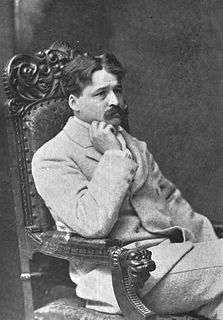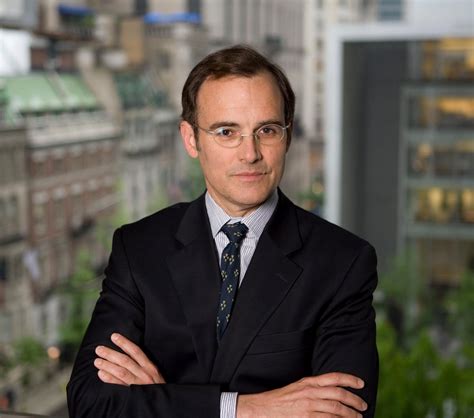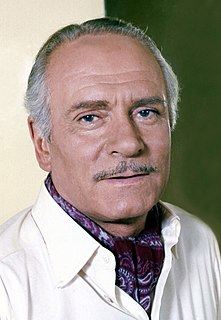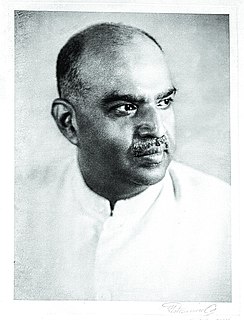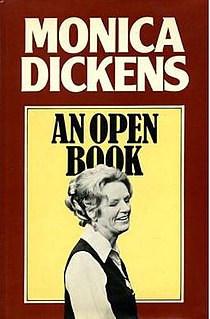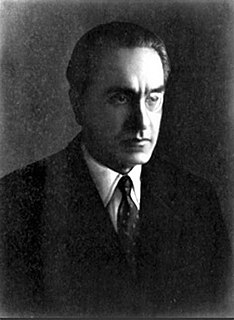Top 335 Professions Quotes & Sayings - Page 6
Explore popular Professions quotes.
Last updated on December 18, 2024.
We had early on women having the right to vote, then women in the workforce during WWII, just going back in history, and then we had the higher education of women, and then women more fully participating in the economy and in business, the professions, education, you name the subject... but the missing link has always been: is there quality, affordable healthcare for all women, regardless of what their family situation might be?
Once more September marveled that even the Dodo knew what she wanted to be when she was grown. She simply could not think what she herself might do. September expected that destinies, which is how she thought of professions, simply landed upon one like a crown, and ever after no one questioned or fretted over it, being sure of one’s own use in the world. It was only that somehow her crown had not yet appeared. She did hope it would hurry up.
The doctrine of vocation deals with how God works through human beings to bestow His gifts. God gives us this day our daily bread by means of the farmer the banker, the cooks, And the lady at the check-out counter. He creates new life - the most amazing miracle of all - by means of mothers and fathers. He protects us by means of the police officers, firemen, and our military. He creates. Through artists. He heals by working through doctors, nurses, and others whom He has gifted, equipped, and called to the medical professions.
It doesn't dawn on this depraved bourgeois world that this is positively a sin against all reason; that it is criminal lunacy to keep on drilling a born half-ape until people think they have made a lawyer out of him, while millions of members of the highest culture- race must remain in entirely unworthy positions; that it is a sin against the will of the Eternal Creator if His most gifted beings by the hundreds and hundreds of thousands are allowed to degenerate in the present proletarian morass, while Hottentots and Zulu Kaffirs are trained for intellectual professions.
The word smart is not applied to all professions, even if you are smart in that profession. No one talks about smart lawyers. They may say a brilliant lawyer. They'll talk about a creative artist. Smart is saved for scientists. It just is. It's not even really applied to medical doctors. It applies to scientists in the lab figuring out what hadn't been figured out before.
The great liability of the engineer compared to men of other professions is that his works are out in the open where all can see them. His acts, step by step, are in hard substance. He cannot bury his mistakes in the grave like the doctors. He cannot argue them into thin air or blame the judge like the lawyers. He cannot, like the architects, cover his failures with trees and vines. He cannot, like the politicians, screen his shortcomings by blaming his opponents and hope the people will forget. The engineer simply cannot deny he did it. If his works do not work, he is damned.
In most professions, if you stay at the office an extra four hours every day, you're gonna impress the boss. You're gonna get that promotion; you're gonna get that raise. You're gonna at least have job security. But with acting, if you're really ambitious and you have a good work ethic and are really good at your job, it might not really matter.
A sturdy lad from New Hampshire or Vermont who in turn tries all the professions, who teams it, farms it, peddles, keeps a school,preaches, edits a newspaper, goes to Congress, buys a township, and so forth, in successive years, and always like a cat falls on his feet, is worth a hundred of these city dolls. He walks abreast with his days and feels no shame in not "studying a profession," for he does not postpone his life, but lives already.
Without laughter life on our planet would be intolerable. So important is laughter to us that humanity highly rewards members of one of the most unusual professions on earth, those who make a living by inducing laughter in others. This is very strange if you stop to think of it: that otherwise sane and responsible citizens should devote their professional energies to causing others to make sharp, explosive barking-like exhalations.
The reason for the slow progress of the world seems to lie in a single fact. Every man is born under the yoke, and grows up beneath the oppressions of his age. He can only get a vision of the unselfish forces in the world by appealing to them, and every appeal is a call to arms. If he fights he must fight, not one man, but a conspiracy. He is always at war with a civilization. On his side is proverbial philosophy, a galaxy of invisible saints and sages, and the half-developed consciousness and professions of everybody. Against him is the world, and every selfish passion in his own heart.
I testify that no one of us is less treasured or cherished of God than another. I testify that He loves each of us—insecurities, anxieties, self-image, and all. He doesn’t measure our talents or our looks; He doesn’t measure our professions or our possessions. He cheers on every runner, calling out that the race is against sin, not against each other.
We seem to have forgotten that the expression "a liberal education" originally meant among the Romans one worthy of free men; while the learning of trades and professions by which to get your livelihood merely, was considered worthy of slaves only. But taking a hint from the word, I would go a step further and say, that it is not the man of wealth and leisure simply, though devoted to art, or science, or literature, who, in a true sense, is liberally educated, but only the earnest and free man.
Specialness as a primary mode of death transcendence takes a number of other maladaptive forms. The drive for power is not uncommonly motivated by this dynamic. One's own fear and sense of limitation is avoided by enlarging oneself and one's sphere of control. There is some evidence, for example, that those who enter the death-related professions (soldiers, doctors, priests, and morticians) may in part be motivated by a need to obtain control over death anxiety.
With regard to the learned professions, little need be observed; they truly form no distinct interest in society . . . [discussing the landed, merchant, and learned classes in legislative assembly]. Will not the man of the learned profession, who will feel a neutrality to the rivalships between the different branches of industry, be likely to prove an impartial arbiter between them, ready to promote either, so far as it shall appear to him conducive to the general interests of society?
I love the theatre and I love working in the theatre but I'm a big cinefile and I love the movies. I also do scribble but to limited success! I think I find being in a room on my own quite hard, which I think a lot of actors do because what we do is so inter-active. It's a very supportive profession... despite its reputation for being highly competitive it's actually one of the most collaborative professions you can do in the arts because you're always working in a team.
This reference to the Scots side of her ancestry is the first of two visual explorations into Tori Amos's diverse cultural past. As is the case for many of us, Tori's ancestry is a mix of races and religions, philosophies and professions, fortunes and foibles. What to some may seem like a family tree grown wild and untamed is actually a mighty oak that has weathered life's many storms and can still put out a rare and beautiful blossom like Tori.
Jack Bogle's passionate cry of Enough! contains a thought-provoking litany of life lessons regarding our individual roles in commerce and society. Employing a seamless mix of personal anecdotes, hard evidence and all-too-often-underrated subjective admonitions, Bogle challenges each of us to aspire to become better members of our families, our professions and our communities. Rarely do so few pages provoke so much thought. Read this book.
James Russell offers a timely and compelling blueprint for a realistic transformation of America's energy consumption by refusing to fall victim to conventional thinking. Accessible?pragmatic even?Russell's proposals speak to goals on the immediate horizon and underscore the role that intelligent design can play now in America. On a longer horizon, his analysis points to a range of issues about land use, transportation, and coordination of public and private investments to which the design professions have an enormous contribution to make. Here design and policy find common ground.
Let's be clear: all professions look bad in the movies. And there's a good reason for this. Movies don't portray career paths, they conscript interesting lifestyles to serve a plot. So lawyers are all unscrupulous and doctors are all uncaring. Psychiatrists are all crazy, and politicians are all corrupt. All cops are psychopaths, and all businessmen are crooks. Even moviemakers come off badly: directors are megalomaniacs, actors are spoiled brats. Since all occupations are portrayed negatively, why expect scientists to be treated differently?
I have ever hated all nations, professions, and communities, and all my love is toward individuals: for instance, I hate the tribe of lawyers, but I love Counsellor Such-a-one, and Judge Such-a-one: so with physicians - I will not speak of my own trade - soldiers, English, Scotch, French, and the rest. But principally I hate and detest that animal called man, although I heartily love John, Peter, Thomas, and so forth. This is the system upon which I have governed myself many years, but do not tell.
I love hip-hop and R&B. People always say, "You are dark, you make dark dresses. You probably only love The Cure or Diamanda Galás." I love Diamanda Galás, but I also love Madonna, Beyoncé, and Courtney Love. They are all from different worlds, but they all evoke emotions in me. I am someone who needs emotions and needs to transmit them. If that weren't the case, I'd be better off changing professions.
For those of us who got into good colleges or the professions, did we stand up to that high school history teacher who told us some ridiculous lie about American history and say, "That's a ridiculous lie. You're an idiot"? No. We said, "All right, I'll keep quiet, and I'll write it in the exam and I'll think, yes, he's an idiot." And it's easy to say and believe things that improve your self-image and your career and that are in other ways beneficial to yourselves.
If people are highly successful in their professions they lose their sense. Sight goes. They have no time to look at pictures. Sound goes. They have no time to listen to music. Speech goes. They have no time for conversation. Humanity goes. Money making becomes so important that they must work by night as well as by day. Health goes. And so competitive do they become that they will not share their work with others though they have more themselves. What then remains of a human being who has lost sight, sound, and sense of proportion? Only a cripple in a cave.
When I'm talking about the white working class, here's what I'm defining: high school degree, no more, and working in a blue-collar job or a low-skilled service job. When I'm talking about the white, upper-middle class, I'm talking about people who work in the professions or managerial jobs and have at least a college degree.
Feminism as a movement for political and social equity is important, but feminism as an academic clique committed to eccentric doctrines about human nature is not. Eliminating discrimination against women is important, but believing that women and men are born with indistinguishable minds is not. Freedom of choice is important, but ensuring that women make up exactly 50 percent of all professions is not. And eliminating sexual assaults is important, but advancing the theory that rapists are doing their part in a vast male conspiracy is not.
A sexual athlete is not likely to find sufficient energy for work of another athletic kind, and the acting of great parts most definitely was and always will be athletic, depending on inner if not on visible energy. Members of other professions that depend on the expenditure of physical energy must, I believe, find similar difficulties when attempting to double up on their energies. One has often heard that the most magnificent specimens of boxers, wrestlers and champions in almost every branch of athletic sport prove to be disappointing upon the removal of that revered jockstrap.
Generally speaking, an Indian university must regard itself as one of the living organs of national reconstruction. It must discover the best means of blending together both the spiritual and the material aspects of life. It must equip its alumni irrespective of caste, creed or sex, with individual fitness, not for its own sake, not for merely adorning varied occupations and professions, but in order to teach them how to merge their individuality in the common cause of advancing the progress and prosperity of their motherland and upholding the highest traditions of human civilisation.
The noblest calling in the world is motherhood. True motherhood is the most beautiful of all arts, the greatest of all professions. She who can paint a masterpiece, or who can write a book that will influence millions, deserve the plaudits and admiration of mankind; but she who rears successfully a family of healthy, beautiful sons and daughters whose immortal souls will exert influence throughout the ages long after paintings shall have faded, and books and statues shall have decayed or been destroyed, deserves the highest honor that man can give, and the choicest blessings of God.
Nursing is a kind of mania; a fever in the blood; an incurable disease which, once contracted, cannot be got out of the system. If it was not like that, there would be no hospital nurses, for compared dispassionately with other professions, the hours are long, the work hard, and the pay inadequate to the amount of concentrated energy required. A nurse, however, does not view her profession dispassionately. It is too much a part of her.
As a kid, I dreamt of becoming a writer. My most exciting pastime was reading novels; in fact, I would read anything I could find. I never thought I would pursue mathematics until my last year in high school. I grew up in a family with three siblings. My parents were always very supportive and encouraging. It was important for them that we have meaningful and satisfying professions, but they didn't care as much about success and achievement.
Ever judge of men by their professions. For though the bright moment of promising is but a moment, and cannot be prolonged, yet if sincere in its moment's extravagant goodness, why, trust it, and know the man by it, I say,- not by his performance; which is half the world's work, interfere as the world needs must with its accidents and circumstances: the profession was purely the man's own. I judge people by what they might be,- not are, nor will be.
The entrance of the woman with equal rights into practical modern life, her new freedom, her finding herself side by side with men in the streets, offices, professions, factories, sports, and now even in political and military life, is one of those dissolutive phenomena in which, in most cases, it is difficult to perceive anything positive. In essence, all this is simply the renunciation of the woman's right to be a woman.
How our story has been divided up among the truth-telling professions! Religion, philosophy, history, poetry, compete with each other for our ears; and science competes with all together. And for each we have a different set of ears. But, though we hear much, what we are told is as nothing: none of it gives us ourselves, rather each story-kind steals us to make its reality of us.
We recognize a tree by its fruit, and we ought to be able to recognize a Christian by his action. The fruit of faith should be evident in our lives, for being a Christian is more than making sound professions of faith. It should reveal itself in practical and visible ways. Indeed it is better to keep quiet about our beliefs, and live them out, than to talk eloquently about what we believe, but fail to live by it.










